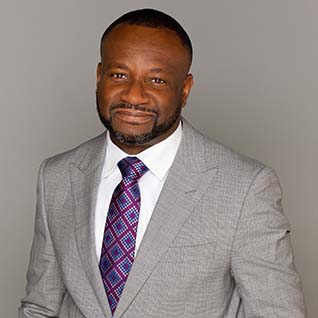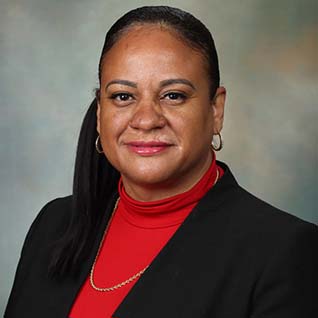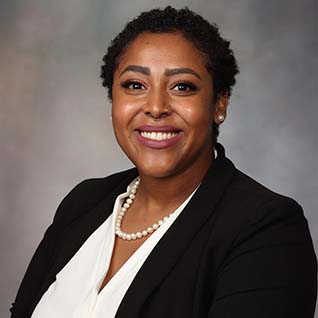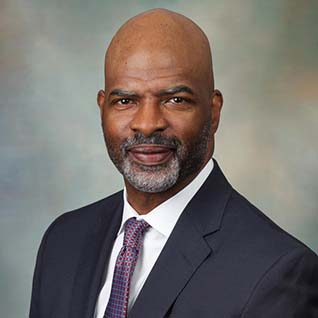/prod01/channel_2/media/mccms/content-assets/about/news/jan-april-2022/size-1024X512-black-history-month-main-image1222969_3319834_0363.jpg)
February 16, 2022
In recognition of Black History Month this February, the Office for Education Diversity, Equity, and Inclusion recognizes Black faculty, learners, trainees, and leaders in our Mayo Clinic community. Read more about their thoughts as they reflect on the 2022 theme "Black Wellness and Health" and what Black History Month means to them.
Over the last two years, as we have collectively weathered a global pandemic, issues of health, wellness, and racial justice have come to the forefront in unprecedented and urgent ways. This year’s national theme of Black Health and Wellness is a fitting and salient one.
According to the Association for the Study of African American Life and History, the theme "acknowledges the legacy of not only Black scholars and medical practitioners in Western medicine, but also other ways of knowing (e.g., birth workers, doulas, midwives, naturopaths, herbalists, etc.) throughout the African Diaspora. The 2022 theme considers activities, rituals, and initiatives that Black communities have done to be well."
 Walé Elegbede, M.B.A., PMP
Walé Elegbede, M.B.A., PMP
Walé is the director of the Strategy Management Services at Mayo Clinic and president of the NAACP (National Association for the Advancement of Colored People) Rochester Branch. He was born in Lagos, Nigeria, and resides in Rochester, Minnesota.
"Black History Month is an opportunity for us to learn about the significant contributions of African Americans who, in many cases, were neglected and not highlighted like others due to racism and systemic racism," reflects Walé. "The effect of this was that despite their significant contributions, many unfortunately were relegated to the footnotes of history. I bet not many know that the first African American man to run for President was George Edwin Taylor, who lived in neighboring La Crosse, Wisconsin, and ran for president in 1904. Locally, in Rochester, Minnesota, a sailor in the United States Navy, George Washington Gibbs Jr., who helped to found the Rochester Branch of the NAACP, became the first person of African descent to set foot on the continent of Antarctica on the Antarctic Peninsula (South Pole)."
Walé considers the theme of Black Wellness and Health to be an important one. "In Minnesota, the color of a person’s skin and economic status are factors that determine the risk for chronic asthma, exposure to toxins, and a host of other environmental dangers," he says. "It’s unfortunate that concentrated polluting industries disproportionately impact Minnesotans along with race and socioeconomic lines. Systemic racism is a key driving force of social determinants of health, and CDC acknowledges."
"Addressing systemic racism in policies, governance, funding, practices, and norms is needed to help advance health equity and build a healthier nation for everyone," Walé continues. "While talking about black wellness and health is important, much work has been done to define the problem, and I hope to focus on the 'action part.' Commitment, effort, and energy will be needed to positively change the future, and it’s time to get to work!"
Yerronda (Ronda) Lewis
Ronda is a supervisor in Radiology in Arizona Campus, OEDEI (Office for Education Diversity, Equity, and Inclusion) administrative support, and vice-chair of Arizona African Descendant MERG (Medical Education Research Group). Her hometown is Phoenix, Arizona.
Black history month is a celebration of our ancestors and their excellence, shares Ronda. "It allows us to speak to their motivation to strive for the greatness that lies beyond our current circumstances, provides us a sense of community, challenges us to create better pathways for our successors, and inspires us to continue this work due to the constant reminder that, without Black history, there would be no history."
"The 2022 theme of Black Wellness and Health highlights how American healthcare has underserved the African American community," says Ronda. "As Blacks, we have a lengthy history of lack in the area of equitable healthcare and access to information and resources for better care."
This theme challenges her to continue the work Mayo Clinic does to inform, educate, and empower patients and communities with tangible resources to increase healthcare access in a comprehensive way.
 Desiree’ (Brionne) Dillard
Desiree’ (Brionne) Dillard
Brionne is a first-year medical school student at Mayo Clinic Alix School of Medicine on the Arizona campus. Her hometowns are Phoenix and Tucson, Arizona.
"Black History Month is an opportunity for Black people to celebrate who we are and what we have contributed globally with greater external recognition," says Brionne. "Black history IS American history, and telling these stories is more important now than ever. It's important to note that EVERY month is Black History Month, and the world is fueled by black creativity and invention."
The theme Black Wellness and Health speaks to Brionne as she recently embarked on a personal wellness journey after being inspired by her grandmother.
"As a Black collective," she says, "we deserve the peace and joy associated with good health. We deserve to enjoy our lives fully and free of the constraints of systemic injustice."
Keith Jones
Keith is an employee well-being specialist at Mayo Clinic and chair of African Descendants MERG (Medical Education Research Group). Keith's hometown is Memphis, Tennessee. He currently resides in Arizona.
"For me," says Keith, "Black History Month is an opportunity to learn and share about people who have contributed or continue to contribute to humanity in a meaningful way. As a child growing up in Tennessee, the adults in my life introduced me to the rich history of people who dedicated their lives to improve society and inspire others to make a difference, too. In addition to learning about people of African descent, I gained knowledge about individuals from other backgrounds who worked to create an inclusive, equitable, and diverse world."
The 2022 theme of Black Wellness and Health resonates with Keith on multiple levels. First, he says it highlights and celebrates the work of people who have made positive contributions to health and well-being. Additionally, the theme of Black Wellness and Health brings attention to the fact that many people remain underserved in our country. He believes that Mayo Clinic's commitment against racism is helping address this.
 Christeebella (Bella) Akpala, R.N.
Christeebella (Bella) Akpala, R.N.
Bella is a medical student at Mayo Clinic Alix School of Medicine on the Rochester campus. She is a member of MCASOM Minnesota Diversity, Equity and Inclusion Council. Her hometown is Baltimore, Maryland.
"Black History Month emphasizes previously, and still, ignored American culture and history," says Bella. "I think it provides necessary emphasis to the many forgotten people and events that contributed to the creation of the America we know today. If there had never been racism, American history would be the history of all Americans. Black history, a huge part of American history, should be a default part of the history taught to future generations. One day, the hope is that Black history and American history will be synonyms rather than two separate histories that had been ignored for so many generations."
Regarding the 2022 theme, Bella thinks that the issues faced by Blacks within the healthcare system cannot be overemphasized. As a physician in the making, Bella is committed to making Black health and wellness at the forefront of her practice. She believes the responsibility of making the nation a healthier place begins with creating opportunities for health equity amongst Black and other minority communities.
About the Office for Education Diversity, Equity, and Inclusion
At Mayo Clinic, the Office for Education Diversity, Equity, and Inclusion recognizes that the contributions of every individual is essential to success in patient care, education, and research. The office strives to maintain and further develop a learning environment in which individual differences are valued, allowing all staff and students to achieve their fullest potential.
To read and learn more about recognizing Black History Month at Mayo Clinic, visit the Office for Education Diversity, Equity, and Inclusion’s social media channels — Facebook, LinkedIn, and Instagram.